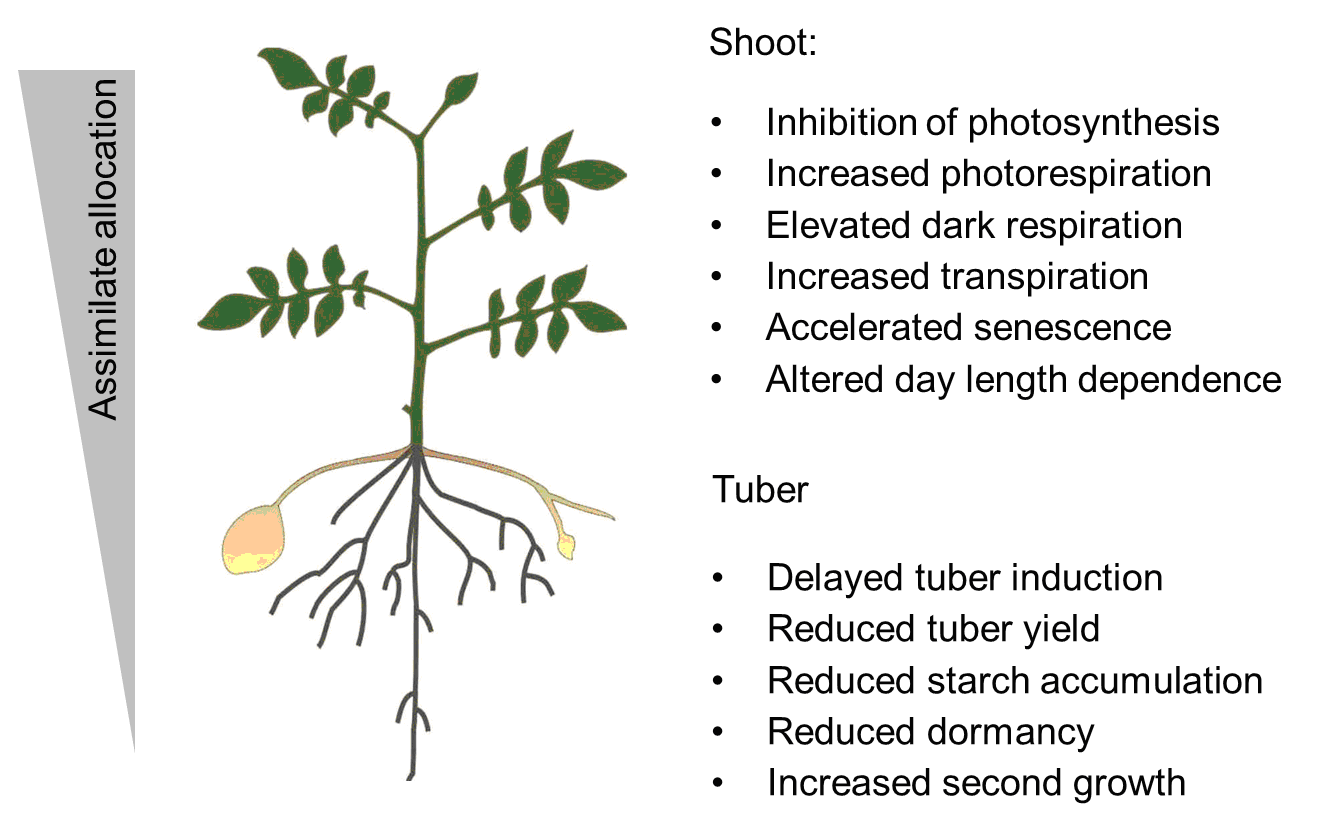DynaMo Seminar: Uwe Sonnewald
DynaMo Semiars are a series of public seminars hosted by DynaMo Center. We are pleased to announce our next seminar speaker:
Uwe Sonnewald
Universität Erlangen-Nürnberg, Germany
New member of DynaMo Center Scientific Advisory Board
Impact of elevated temperatures on source-to-sink relations
Potato is the third most important food crop in the world after rice and wheat. Because of its widely-distributed cultivation and high yields, it is considered a critical species in terms of food security in face of a growing world population.

However, potato is particularly vulnerable to high temperature during various stages of its life cycle. Elevated temperatures strongly suppress tuberization, negatively affect storage and shelf life of tubers and reduce fitness of seed potatoes. Breeding new heat-stress tolerant cultivars is therefore an urgent need for sustainable increases in potato production.
To achieve this goal an integrated approach combining physiology, biochemistry and molecular genetics is followed to analyze the impact of elevated temperatures on source-sink relations of potato plants, potato tuber development, starch accumulation and tuber quality and tuber dormancy. First results indicate that heat effects source-sink relations by altered expression of the tuber inducing signal FT, by stimulating shade-avoidance responses of the shoot and by decreasing sink-strength of developing tubers.
Sink strength of growing potato tubers is mainly regulated by the activity of sucrose synthase. Measuring sucrose synthase expression and activity of heat grown potato tubers revealed a significant down-regulation of the enzyme which is consistent with reduced tuber growth.
Molecular studies suggest that FT is not only transcriptionally regulated but also post-transcriptionally by siRNAs. This assumption is based on a comparative miRNA analysis of potato plants grown under control and heat conditions. Several known miRNAs are significantly regulated during heat treatment, in addition one siRNA potentially targeting SP6a could be identified. The importance of this siRNA is currently under investigation. By ectopic overexpression of an artificial siRNA-resistant FT gene, tuberization could strongly be accelerated.
This premature tuberization negatively influenced shoot growth and the ability of leaves to accumulate transitory starch, indicating that FT is a master regulator of source-to-sink relations. Although FT seems to play a major role in regulating tuberization, sink-derived signals are likely to be involved in orchestrating the heat-induced shift in assimilate allocation. This assumption is based on experiments in which soil and air temperatures of pot grown potato plants were independently controlled in growth chambers and transcript as well as sugar and enzyme profiles were recorded.
Based on the results discussed above it is evident that cell-to-cell movement of source and sink signals play essential roles in balancing source-sink relations. This transport is mediated by plasmodesmata (PD). Up to now little is known about the protein composition and regulation of PD function. Proteomics studies on Arabidopsis mutants, unable to develop complex PD in mature leaves, revealed a first insight into proteins specifically associated with complex PD.
Functional analysis of these proteins will allow to get a better understanding of the molecular composition of PD and their role in source-to-sink communication.
Uwe Sonnewald is Professor and Head of Department of Biology at Universität Erlangen-Nürnberg, Germany. The research group plant biochemistry and biotechnology concentrates on application-oriented basic science in the field of plant growth and development. In addition aspects of Synthetic Biology are considered.
Read more about the Uwe Sonnewald Group.

